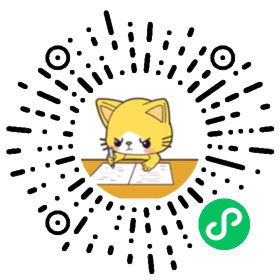【单选题】
太平天国后期提出《资政新篇》的是___
A. 天王洪秀全
B. 干王洪仁玕
C. 英王陈玉成
D. 忠王李秀成
查看试卷,进入试卷练习

微信扫一扫,开始刷题

答案
B
解析
暂无解析
相关试题
【单选题】
中国民族资产阶级具有两面性的根本原因是 ___
A. 其产生晚于中国无产阶级
B. 其产生发展于中国社会半殖民地半封建化的过程中
C. 其产生晚于西方资产阶级
D. 中国资产阶级力量弱小
【单选题】
辛亥革命的最大功绩是___
A. 结束了两千多年的君主专制政体,建立了资产阶级共和国
B. 使人民获得了一些民主和自由的权利
C. 为资本主义的发展创造了条件
D. 使民主共和观念深入人心
推荐试题
【单选题】
以下关于纸质银承签发时的流程描述正确的是___
A. 材料审核→票号分配→凭证打印→承兑记账→手续费收取
B. 材料审核→手续费收取→票号分配→承兑记账→凭证打印
C. 材料审核→票号分配→承兑记账→凭证打印→手续费收取
D. 材料审核→手续费收取→票号分配→凭证打印→承兑记账
【单选题】
银行承兑汇票解付时,“二代支付”和“核心支付”对应的科目分别是___和( )。
A. 26100802 26100301
B. 26200301 26100802
C. 26100802 26100302
D. 26100302 26100802
【单选题】
银行承兑汇票解付时,发现最后一手背书人委托收款背书时将“委托收款”字样写于被背书人栏,则下列说法正确的是___。
A. 该票据属于一般瑕疵票据,应及时联系委托收款银行,要求相关责任人出具书面证明
B. 该票据属于轻微瑕疵票据,由营业机构双人复核后可以直接付款
C. 该票据属于严重瑕疵票据,应直接退回给托收银行
D. 该票据属于无瑕疵票据,“委托收款”字样既可以写于背书人栏,也可以写于被背书人栏,可以正常解付
【单选题】
以下关于银行承兑汇票的相关内容,说法错误的是___
A. 纸质商业汇票的付款期限自出票日开始计算,一般为六个月,最长不超过一年。
B. 持票人对出票人和承兑人的票据权利,最长为两年。
C. 商业汇票的提示付款期限,自汇票到期日起十天。
D. 自客户口挂之日起12日内没有收到人民法院的支付通知书,第13日起挂失止付通知书失效。
【单选题】
商业汇票按承兑人的不同分为商业承兑汇票和银行承兑汇票,商业承兑汇票由( )出票、( )承兑,银行承兑汇票由( )出票、( )承兑。___
A. 企业,企业,企业,银行
B. 企业,企业,银行,银行
C. 银行,企业,银行,银行
D. 企业,银行,银行,银行
【单选题】
若付款人提前收到其承兑的商业汇票,付款人在接到通知日的次日起( )日内未通知银行付款,付款人接到通知的次日起第( )日早于汇票到期日的,银行应于汇票到期日将票款划给持票人。___
A. 3 3
B. 5 5
C. 3 5
D. 3 4
【单选题】
以下哪个说法不正确___
A. 单位和个人的各种款项的结算均可使用汇兑方式。
B. 结算业务申请书上记载的收款人为个人,且需要到汇入行领取汇款的,汇款人应在结算业务申请书收款人账号或地址栏注明“留行待取”字样。汇款人确定不得转汇的,应在结算业务申请书备注栏注明“不得转汇”字样。
C. 汇款人对银行尚未汇出的款项可以申请撤销。申请撤销时,应出具正式函件及原汇款回单。汇出银行查明确未汇出款项的,收回回单后,办理撤销。
D. 汇款人对银行已经汇出的款项不可以申请退汇。
【单选题】
下列说法正确的是___
A. 节假日小额支付系统限额为20万;
B. 付款人一样、金额一样的重复业务,需要网点会计主管授权;
C. 金额≥5万,汇款渠道也可以选择小额支付系统;
D. 补记客户账可以柜员相互授权。
【单选题】
关于委托收款,下列哪句话是错的___?
A. 以银行以外的单位或在银行开立存款账户的个人为收款人的,委托收款凭证必须记载收款人开户银行名称;
B. 委托收款以银行以外的单位为付款人的,委托收款凭证必须记载付款人开户银行名称;
C. 欠缺记载收款人开户银行的,银行经咨询客户后可以补记并受理。
D. 未在银行开立存款账户的个人为收款人的,委托收款凭证必须记载被委托银行名称。
【单选题】
关于托收承付业务,下列哪句话是错误的___
A. 办理托收承付,必须是商品交易,以及因商品交易而产生的劳务供应的款项;
B. 托收承付结算每笔金额起点为1万元,新华书店系统每笔金额起点为1千元。
C. 签发托收承付必须记载下列事项:使用总行统一规定的凭证格式、确定的金额、收付款人名称及账号、收付款人开户银行名称、托收附寄单证张数和合同名称号码、委托日期和收款人签章。
D. 为其他企业代销、寄销商品的款项,可以办理托收承付。
【单选题】
对付款逾期不退回单证的,开户银行应当自发出索回单证通知的第3天起,按照该笔尚未付清欠款的金额,每天处以万分之五但不低于___元的罚款,并暂停付款人对外办理结算业务,直到退回单证时止
A. 50
B. 100
C. 1000
D. 5

